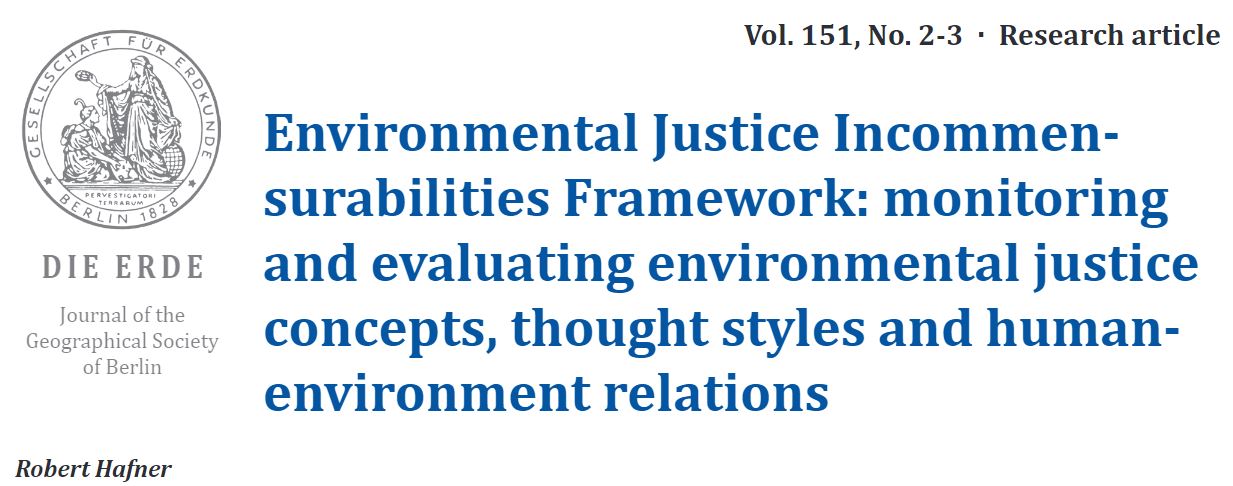Monitoring and evaluating environmental justice concepts, thought styles and human-environment relations
New paper is out!
Environmental justice concepts have undergone significant changes from being solely distributive to include underlying power asymmetries. Consequently, we are now faced with a wide array of different interpretations of what environmental justice is. This calls for a fundamental reflection on what environmental justice stands for, how and most importantly why it is used.
To achieve this goal, this paper elaborates on the genesis of environmental justice. Recurring challenges of environmental justice research and activism will be identified. Addressing those challenges, as well as breaking down environmental justice concepts into smaller patterns and Fleck’sian thought styles, the Environmental Justice Incommensurabilities Framework (EJIF) is introduced. This evaluation and monitoring tool encourages actors (and especially researchers) to reflect upon ideological positionings and axiological interpretations of human-environment relations as well as justice, making research on and with environmental justice more transparent and comparable.
Continue reading “Environmental Justice Incommensurabilities Framework”


